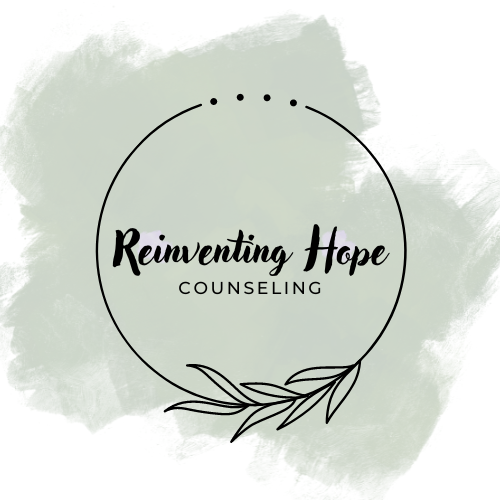Emotions Are Not ‘Negative’ But ‘Natural’
In our daily conversations, it's common to hear emotions classified into two distinct categories: positive and negative. Happiness, joy, and excitement are celebrated as positive emotions, while sadness, anger, and fear are often stigmatized as negative. This dichotomy, however, oversimplifies the rich and complex nature of our emotional experiences. Emotions, regardless of how they make us feel, are not inherently negative or positive; they are natural responses that serve essential functions in our lives.
The Role of Emotions
Emotions are deeply intertwined with our survival and well-being. They have evolved over millennia to help us navigate the complexities of our environment. Here’s a closer look at why all emotions are crucial:
Fear and Anxiety: These emotions often get a bad rap, but they are vital for survival. Fear triggers our fight-or-flight response, preparing us to deal with immediate threats. Anxiety, on the other hand, helps us anticipate future challenges and plan accordingly. Without these emotions, we might find ourselves unprepared and vulnerable.
Anger: Often labeled as destructive, anger can be a powerful force for positive change. It signals that something is wrong and motivates us to address injustices or remove obstacles. When managed healthily, anger can lead to constructive conversations and actions.
Sadness: Sadness allows us to process loss and disappointment. It encourages introspection and can lead to personal growth and increased resilience. It also fosters empathy and connection, as it often brings people together to offer support.
Disgust: This emotion protects us from harm by steering us away from things that might be dangerous or unhealthy. It plays a critical role in our decisions about what to consume and what to avoid.
Emotions as Messengers
Rather than viewing certain emotions as negative, it's more helpful to see them as messengers. They convey important information about our inner states and our external environment (or getting us to focus on what matters to us). By paying attention to our emotions, we can gain valuable insights into our needs, desires, and boundaries.
Listening to Our Emotions: Instead of suppressing or ignoring uncomfortable emotions, we can benefit from acknowledging and understanding them. What is our anger trying to tell us about our boundaries? What does our sadness reveal about our values and what we cherish?
Emotional Intelligence: Developing emotional intelligence involves recognizing, understanding, and managing our emotions. This skill allows us to respond to our feelings in a healthy and constructive way. It also improves our relationships, as we become more empathetic and attuned to the emotions of others.
The Impact of Trauma on Emotions
Trauma can profoundly affect how we experience and process emotions. Trauma survivors often face unique emotional challenges due to the lingering effects of their experiences.
Heightened Sensitivity: Trauma can make individuals more sensitive to emotional triggers. Ordinary situations might evoke intense emotional reactions that seem disproportionate to the situation, especially if we weren’t taught to listen to what our emotions are telling us or how to deal with tough situations.
Emotional Numbness: Conversely, some trauma survivors may experience emotional numbness or dissociation. This can be a coping mechanism to avoid the pain associated with traumatic memories, but it can also make it difficult to connect with others or experience joy.
Re-experiencing Emotions: Trauma can cause individuals to re-experience the emotions associated with the traumatic event, leading to flashbacks, nightmares, and intrusive thoughts. These experiences can be overwhelming and distressing.
Difficulty Regulating Emotions: Trauma can disrupt the brain’s ability to regulate emotions effectively. This can result in mood swings, difficulty calming down after being upset, and challenges in maintaining stable emotional states.
Healing from Trauma
Understanding and addressing the emotional impact of trauma is crucial for healing (and for living our best and connecting with others). Here are some ways to support emotional recovery:
Therapy: Professional help from a therapist trained in trauma can provide a safe space to process emotions, ask questions, get support, and develop coping strategies.
Mindfulness and Grounding Techniques: These practices can help trauma survivors stay present and manage overwhelming emotions. Techniques such as deep breathing, meditation, and grounding exercises can reduce anxiety and promote emotional stability.
Support Systems: Connecting with supportive friends, family, or support groups can provide comfort and validation. Sharing experiences with (safe and supportive) others who understand can be incredibly healing.
Self-Compassion: Trauma survivors should practice self-compassion, recognizing that their emotional responses are valid and understandable given their experiences. Being kind to oneself during the healing process is essential.
The Harm of Labeling Emotions as Negative
Labeling emotions as negative can lead to emotional suppression and shame. When we judge our feelings, we are less likely to express them or seek support. This can result in emotional bottling, where unaddressed emotions build up and eventually manifest in harmful ways, such as stress, anxiety disorders, maladaptive coping strategies, physical health problems, and more.
Embracing Emotional Wholeness
To live a balanced and fulfilling life, it’s important to embrace the full spectrum of our emotions. Emotions are a natural and integral part of the human experience. By reframing how we view our emotions—from negative or positive to simply natural—we can foster a healthier, more compassionate relationship with ourselves. Embracing all our emotions allows us to navigate life with greater resilience, understanding, and connection.
When you find yourself feeling uncomfortable emotions, remember: they're not negative; they're natural. Embrace them, learn from them, and let them guide you towards growth and understanding. If you need support along the way, reach out for help. Your journey to thriving and living your fullest human experience matters to us.

